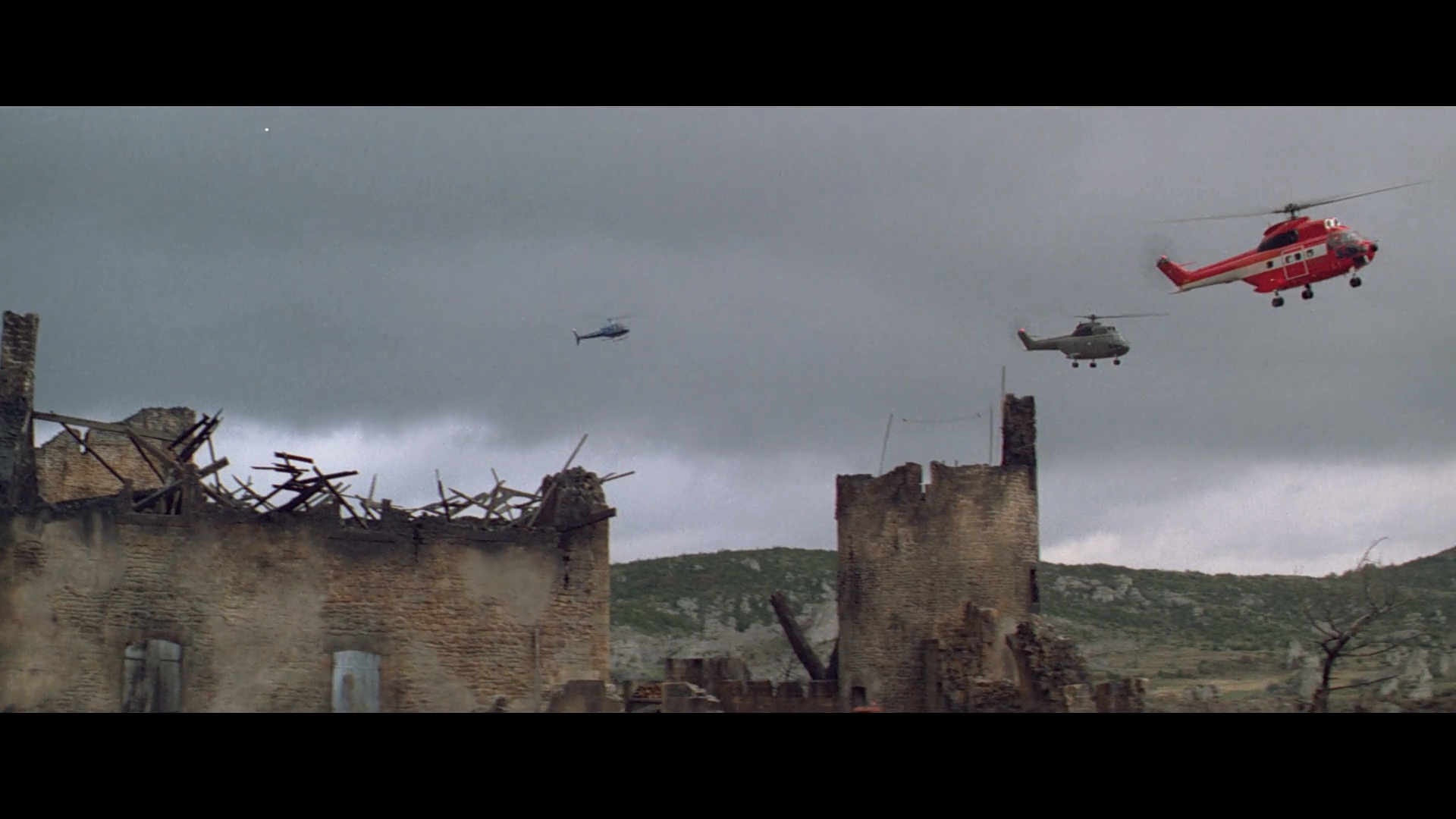"Malevil is a 1981 post-apocalyptic French film directed by Christian de Chalonge. It's the adaptation of the 1972 science fiction novel Malevil by Robert Merle. The film takes place in a small village named Malevil within central France. Due to an administrative issue, the mayor, pharmacist, farmers, traders, and other villagers attend a meeting in the local château's large wine cellar on a beautiful sunny day in late summer. However, while the meeting is taking place the radio suddenly cuts out. Moments later, huge explosions occur followed by long and violent flashes. The noise, excessive heat, and moisture cause everyone in the cellar to fall unconscious. The survivors awaken to find a scorched world where almost nothing remains. They embark on a new life faced with isolationism and violence.
*
As with Threads and The Day After, Malevil is a work of aesthetic pleasure. There's no point in denying it. The sets are magnificent, as if taken from a painting or a dream, and you find yourself finding this world attractive, not in spite of the ruins, but because of them.
Because, and this is what makes the film so special, these ruins are not an end, they're a beginning, a promise. The promise of a quieter life. Freer. More silent. A less populated world, where we can once again spread out, a world to be conquered (and in this, Malevil leans towards the western).
A world, too, with simplified social relationships and structures, back to basics. A new Middle Ages. It's not for nothing that Malevil takes place around a castle, not in a council estate or refugee camp.
.jpg)
.jpg)
.jpg)
.jpg)
The entire film is bathed in a timeless atmosphere that flirts with the marvelous. A castle, a village idiot, a toothless old woman, a superb white mare, a young blind woman who regains her sight: we're more in the realm of fairy tale than cold, realistic depiction of a post-nuclear world.
*
Where Brave New World portrayed a credible future of antidepressants and technology-driven human reproduction, Ravage moved in extremis into the realm of moral tales and neo-primitivist marvels, where the end of the world leads to a new, polygamous, eco Eden.
Similarly, where The Day After and, even more so, Threads demonstrate a chilling, quasi-documentary realism about the absolute end of the world brought about by nuclear conflict, the adaptation of Robert Merle's novel develops an idyllic post-apocalyptic posture; the characters are, for the most part, civilized, well-meaning people, courageous, resilient as the bastards say today. Apart from the Commander and his dictatorial wishes, all is well. No radiation, no famine, no disease.
The film's ending is even more optimistic than the novel's: the atomic war has apparently not destroyed the entire world or any form of advanced society, and unexpected, to be honest, rather unwelcome helicopters arrive one fine morning to evacuate Emmanuel Comte and his companions.
More optimistic... in theory. Because in reality, this last scene is horrifying: the small community has miraculously survived the war itself, then the psychological shock, starvation and confrontation with another group. The sun returns, the wheat grows, the arrival of women of childbearing age evokes the possibility of future births...
.jpg)
.jpg)
.jpg)
.jpg)
And now this brand-new freedom, this state of peaceful savagery, finds itself cancelled, confiscated; playtime is whistled by metallic-voiced soldiers in deafening helicopters, who evacuate the whole little community without asking its opinion.
Those who destroyed the world continue to rule in the ruins.
There will be no end to domination, no post-atomic Eden.
.jpg)
.jpg)
.jpg)
.jpg)
Malevil on Archive.org